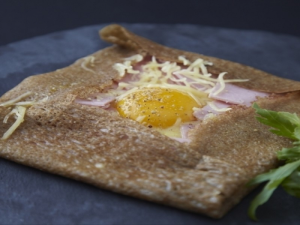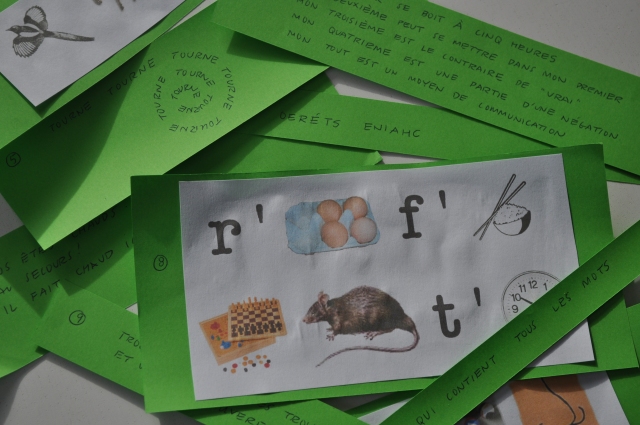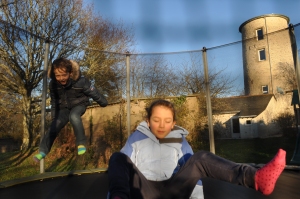 Do French people eat croissants every morning? …Drink coffee all day; Drink wine at each meal; Eat baguettes every day? The answer is most likely ‘no not really’
Do French people eat croissants every morning? …Drink coffee all day; Drink wine at each meal; Eat baguettes every day? The answer is most likely ‘no not really’
But one thing they certainly do is to eat a Galette des Rois every 6th of January! (and nowadays, practically any other time during the month of January). It celebrates the arrival of the Three Wise Men in Bethlehem. It is composed of puff pastry with a small porcelain charm, the ‘fève’, hidden inside the filling of almonds, butter, eggs and sugar (although other flavors such as apple are available). There is the tradition of crowning the one who finds the fève (the ‘king’ or ‘roi’) with a paper crown. Despite enjoying this cake as much as the British Christmas pudding (which is not that much at all) I eat some anyway to join in the festivities and in hope of being the king/queen.
My daughter decided that she’d like one as her birthday cake which was fun. The treasure hunt clues that I mentioned my last post went down well and the group of friends were able to find the treasure (the birthday cake) in the oven.
And without even having the time to recover from the gluttony of December and January, It is time to eat crêpes on February 2nd – and all through the Mardi Gras season. The date marks when Jesus was presented at the temple in Jerusalem and is known as ‘La Chandeleur’. About 2 weeks ago I started to notice supermarkets displaying flour, uht milk (so common here), eggs, jam, and Nutella and so I knew that the Chandeleur was coming.
Just while we’re on the topic of crepes, in France savory crepes (not to be confused with ‘crepes’) are known as ‘galettes’ (not to be confused with ‘galettes des rois’) and are made of buckwheat flour and served with a variety of fillings, the most common being ham, egg and cheese such as in this photo.
There is also another thing that most French people eat whilst dining out and that is whatever is on the ‘fixed menu‘ (known as ‘le menu’. The menu, as we anglo-saxons know it, is called ‘la carte’). All restaurants/bistros offer fixed menus at very attractive prices. Here is the menu that we discovered last month for €15.40 at a lovely restaurant in Nantes:
An entree of rare tuna, beets and lambs lettuce, a main course of sea bream with courgettes and carrots and a dessert (… the least inspired dish of the meal which I find is often the case in this country). That’s what I call amazing value for money! And the children’s menu – at a little more than €8.00 – offered fish or a homemade burger served with jerusalem artichoke puree and then a chocolate lava cake or some homemade ice-cream or sorbet for dessert. Yum!







